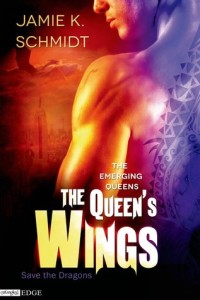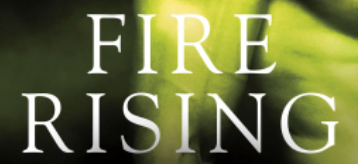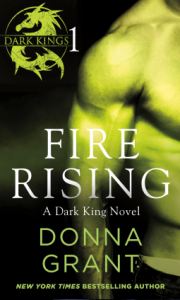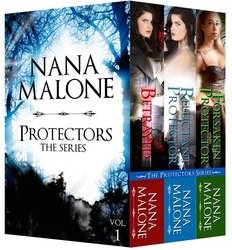 I originally downloaded Nana Malone‘s Protectors series from the Amazon free list. I’m reviewing them here as number 14 & 15 of my Taking Care of my Own challenge. (I’m not counting the prequel, too short.)
I originally downloaded Nana Malone‘s Protectors series from the Amazon free list. I’m reviewing them here as number 14 & 15 of my Taking Care of my Own challenge. (I’m not counting the prequel, too short.)
Description from Amazon:
Betrayed – Book #0.05
Cassie Reeser is a bona fide superhero. But what did she have to give up to get that way? Her brother, Peter’s experiments might have saved her life, but now she’s little more than a weapon in his eyes and he’ll use her how he wishes. Before she was a Protector, Cassie was her brother’s personal lab rat. Can she break from his tyrannical rule or will she sacrifice herself to save her friends?
Reluctant Protector – Book #1
For five years, Cassie Reeser has been her brother’s personal lab rat. Peter’s experiments have made her a stronger, faster, better human. And she’s not the only one. To rescue her friends, she’ll have to depend on former war correspondent, Seth Adams. Cassie might not think she needs his protection, but he’ll die before he lets Peter have her back.
Forsaken Protector – Book #2
The enemy of her enemy is her friend. Almost one year after escaping Gentech Facilities, Symone Jackson lives in the shadows with her nightmares. Garrett Hunter thought he was one of the good guys, but on routine surveillance of a suspected terrorist, he discovers the awful truth…he’s not the only super human around. Can Symone overcome her mistrust of Garrett and stop living in the shadows?
***
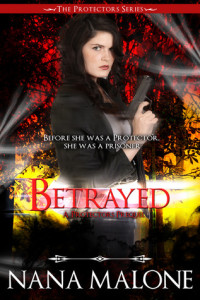
After reading this prequel I almost gave up the series, thinking it was YA. Cassie is in high school at the time of the events, agonises over a boy and has her first kiss, etc. I couldn’t be bothered. But I stuck it out and for the record, though of no real consequence to the review of THIS story, the rest of the series is PNR and heavy on the sex, so not YA.
I basically just thought this was an OK start to the series, but it felt a little like it was the middle of something. Overbearing and for some reason in charge brother, random crush, kiss, decision to escape, escape attempt, etc. Then it ends on a cliffhanger, before it even gets started. Only really worth reading if you’re reading Reluctant Protector too.
***
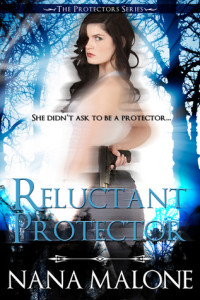
Again, I thought this was an OK read. (I’m seeing a trend.) Cassie has been held captive and experimented on for 5 years, she’s attempted escape before, somehow she’s established a contact to help her give it another go, and here the book starts. This is all basically explained, but like the prequel, it feels very much like we started in the middle of something. A lot happens off set, so to speak.
I liked the story, I really did. I liked Cassie and Seth, I really did. But believable emotions were relatively scarce in this book. I mean, it pretty much boiled down to, “Oh, you accidentally made me a superhuman…OK, moving on.” There was no fear, freakout, anger, really no emotional response at all.
Then there was the ‘romance;’ if I can call it that. The two of them seemed to have an inexplicable pull towards one another. It felt very much like a standard PNR, ‘you’re my destined mate’ kind of affair, but that’s never addressed. Worse yet, it employed the whole ‘Oh, I’m having a really erotic dream that I’m somehow mysteriously aware of’ trope. When of course, he’s awake; of course he’s really having real sex, not dream sex. As if that kind of thing EVER happens. It just felt like a cheap plot device to get them past the awkward ‘I won’t sleep with someone I just met” hurtle.
The sex…it too was OK, though there was a lot of it. There was also a weak attempt to add kink to the sexy bits by “fingering her puckered hole” and blindfolding her, etc. I’ll give it props for not being wholly vanilla, but this is supposed to have been a virgin having sex with a man for the first time or two. You’d think one of them would have been a little hesitant and none of that was really necessary in the first place. Honestly, it just didn’t feel at all natural. There were too many heavy ‘do you trust me?’ pauses followed by pretty light stuff. Meh.
I also had some basic questions. For example, I was curious about Seth’s age, for two reasons. One, Cassie is apparently supposed to be 22. (She’s 17 at the time of the prequel, and book one is set 5 years later.) So, I would expect Seth to be comparably aged, but he can’t be. He’s a war correspondent, so one would expect he graduated HS (18ish), got a journalism degree (22ish), got a job and worked his way up the ranks, since being sent to Afghanistan, Serbia and Rwanda (all of which are mentioned) aren’t newbie assignments, plus the time spent there (5 years minimum, probably significantly more, so at least 27). Two, he acts and speaks like a teenager. Bottom line is that he’s either significantly older than Cassie, but acts younger than his age or is supposed to be young like her, but then can’t hold the professional position he’s supposed to. *scratching head*
I’ll also throw one personal irritant into the mix. I get tired of seeing men teach female characters things they should already know. (It happens all the time in fiction. Men, after all, supposedly have all the answers for us little helpless lasses. grrr) Here, Cassie had had at least some of her powers since she was a teenager and had been training with them and the scientists who created them for YEARS, but within 2 days Seth learned how to use his AND taught Cassie how to improve her own skills in ways she and/or all those well-educated, experienced professionals couldn’t? Realistic or just the normal ‘the man always has the answer’ BS? He was then unquestionably in charge, coming up with the plans and giving orders. Again, Meh.
The book has a sappy ending that I think it could have done without. But I know a lot of readers really like that kind of thing, so OK. It could have done with a little more editing, but the writing is actually pretty good.
All in all, I liked the premise and liked the characters, but the execution was rushed and weak. Not so much that I wouldn’t recommend the book, but enough that it felt like I was just reading the surface of something.
***
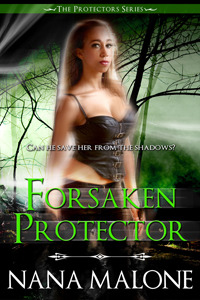
If I can be forgiven for my repetition here, I thought this too was an OK read. Though I’m sorry to say of a lower quality than the previous episodes. In theory, it’s a full novel, as opposed to the short story/novelette of the prequel and novella of book one. (I say in theory because it’s listed as 306 pages, compared to 29 for Betrayed and 97 for Reluctant Protector. But the bundle of all three is listed at 301 pages. Figure that one out.) Regardless, I honestly don’t think it was ready for publication.
The issue is inconsistencies, most notably the time frame VERY unclear. The blurb says this book happens, “Almost one year after escaping Gentech Facilities.” Later Cassie says it’s been 18 months since she met Seth (which was less than a week before the escape and Peter’s death), then the book claims, “Symone didn’t buy into Seth’s vision that Peter had survived the explosion a couple years ago.” Symone was supposed to have gotten her GED and attended college at an accelerated pace (which would still take more than a year). Then later it’s said, “When Cassie, Seth, and Jansen had rescued them six months ago…” Further on it’s back to, “I’ve lived in fear of this for the last couple years” and THEN a mere page or so later it’s, “You’ve been mother hen to his house of ruffians for nearly two years…” followed by, “Eighteen months ago, Cassie broke us out…” There were more, but you get the point.
At some point, I started highlighting all the time references so that I could look at them side by side and try to figure out how long it had been since the events of the last book. Instead I found that it was utterly indecipherable, as if every time the author needed to post a time she just made one up.
Honestly, it’s not just the time between books that is inconsistent though. At one point Symone is said to have gotten her GED at 18 (after the escape) then it said that she was a scrawny 19-year-old when Jansen pulled her out of Gentech. She served Garret fried chicken at one point, when Lisa was said to have made roasted chicken. Symone entered a room in fitted cargo pants, but managed to take off her jeans.
Or how about this one:
You’re the first person in three years I’ve been able to touch who seems somewhat unaffected.” He blew out a breath. “So what you’re saying is, what happened on your couch was just you enjoying someone touching you.” She raised a delicate brow. “Four years is a long time to go without human contact.
There were a few copy edit kind of mistakes, but not enough to really discourage reading the book. But the above type of incongruencies pull me out of a story at almost warp speed.
I also again found myself wondering about characters ages. I’m really not overly focused on this normally, but I needed to know some of them. For example, the way Jansen worried over Symore made me think of him as fatherly (so forties, maybe). Then it was revealed he had ‘feeling’ for her and I was left thinking he must be a comparable age to her early 20s. But this clashed with being an experienced combat veteran, so I didn’t know how to picture him.
In the end, this review is a bit like my experience reading the book. I was so distracted by all of that ↑ that I couldn’t concentrate on the story. It’s a shame too. I liked Symone. I like Garrett. I liked that we got to see more of Cassie and Seth. (Though it felt unnatural that they would just hand the final mission over to Symone, Garrett and Jansen, without participating…and it was hella rushed). I liked that I got to see a few of the other escapees. I even liked the set up for future books, but none of that is what will stick with me and be what I remember in the end.
